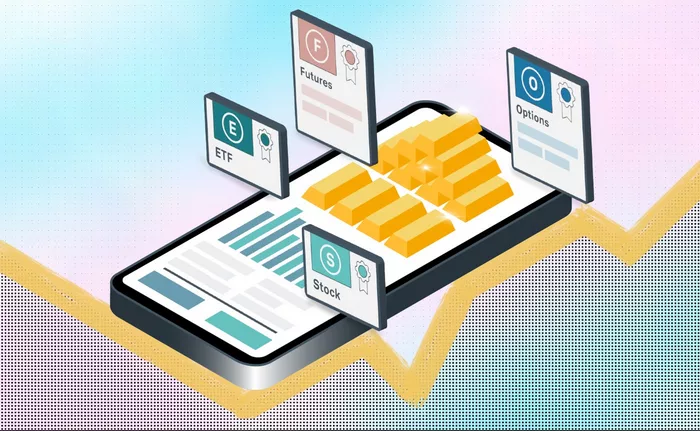Investing in the financial markets can be an excellent way to build wealth and achieve your financial goals. However, with so many investment options available, it can be challenging to decide which ones to invest in. Two popular investment vehicles are stocks and futures. While both have their advantages and disadvantages, in this article, we will explore why futures are better than stocks.
What are futures contracts?
Futures contracts are agreements between two parties to buy or sell an asset at a predetermined price and date in the future. Futures contracts are commonly used to speculate on the future price of commodities such as oil, gold, and wheat. However, futures contracts can also be used to trade financial instruments such as stock indices, currencies, and interest rates.
Why futures are better than stocks?
-
Liquidity
Liquidity refers to how quickly an asset can be bought or sold without significantly affecting its price. Futures contracts are typically more liquid than stocks. This means that it is easier to enter or exit a position in futures markets without causing a significant impact on the market price. The high liquidity of futures markets makes it easier for traders to execute their trading strategies.
In contrast, stocks of smaller companies can be illiquid and difficult to trade. It can be challenging to find a buyer or seller for a stock that is not heavily traded. This can result in wide bid-ask spreads, making it more expensive to buy and sell stocks. Illiquid stocks can also cause traders to have difficulty exiting a position, leading to significant losses.
-
Leverage
Futures contracts allow traders to use leverage, which means that they can control a large position with a relatively small amount of capital. Futures contracts typically require a margin deposit of a small percentage of the total value of the contract. This allows traders to control a large position with a small amount of capital.
In contrast, buying stocks outright requires a much larger capital outlay. While traders can buy stocks on margin, the amount of leverage available for stocks is generally lower than that available for futures contracts.
-
Diversification
Futures contracts provide traders with a way to diversify their portfolios. Futures contracts are available on a wide range of underlying assets, including commodities, stock indices, currencies, and interest rates. This allows traders to gain exposure to multiple asset classes, which can help reduce the overall risk of their portfolio.
In contrast, buying individual stocks can be risky, especially if a trader is heavily invested in a single sector or company. Diversification can help spread risk and reduce the potential for significant losses.
-
Trading hours
Futures markets are open for trading for much longer hours than stock markets. This means that traders can take advantage of market movements outside regular trading hours. For example, the S&P 500 futures market trades for almost 24 hours a day, while the stock market is only open for around 6.5 hours a day.
Extended trading hours can be particularly useful for traders who are based in different time zones or who have other commitments during regular trading hours.
-
Lower costs
Futures contracts typically have lower trading costs than stocks. Futures contracts are traded on centralized exchanges, which can result in lower trading fees. In contrast, stocks are traded on multiple exchanges, which can result in higher trading fees. Additionally, futures contracts are typically more tax-efficient than stocks, which can result in lower tax liabilities for traders.
-
Price transparency
Futures markets are highly transparent, with real-time price data available to all traders. This means that traders can see the current market price of a futures contract and the volume of trades that have been executed. This information can help traders make informed trading decisions.
In contrast, the stock market can be less transparent, with some trades executed off-exchange and not reported publicly. This can make it more difficult for traders to accurately assess the true supply and demand dynamics of a stock, which may impact their trading decisions.
-
Hedging opportunities
Futures contracts provide excellent opportunities for hedging against price fluctuations. Hedging involves taking an offsetting position in the futures market to protect against potential losses in the underlying asset. This is particularly useful for businesses that rely on commodities or foreign currencies, as it allows them to mitigate the risk of adverse price movements.
While stocks also offer some hedging opportunities through options contracts, futures contracts provide a more straightforward and direct way to hedge against market volatility.
-
Access to international markets
Futures contracts allow traders to gain exposure to international markets without the need for direct investment. For example, if you want to invest in the Japanese stock market but face barriers such as regulatory restrictions or limited access, you can trade futures contracts linked to Japanese stock indices. This provides a convenient way to participate in global markets and diversify your investment portfolio.
In contrast, investing in international stocks can be more challenging due to regulatory requirements, currency conversions, and access limitations. Futures contracts provide a simpler and more efficient route to global market participation.
Conclusion
While both futures and stocks have their advantages and disadvantages, futures offer several distinct benefits over stocks. These include higher liquidity, leverage, diversification opportunities, extended trading hours, lower costs, price transparency, hedging possibilities, and access to international markets. However, it is essential to note that futures trading carries its own risks, including the potential for significant losses due to leverage and price volatility.
Before engaging in futures trading, it is crucial to thoroughly understand the underlying assets, market dynamics, and risk management strategies. Consider consulting with a financial advisor or conducting thorough research to ensure that futures trading aligns with your investment objectives and risk tolerance.
Ultimately, the choice between futures and stocks depends on individual preferences, investment goals, and risk appetite. It is advisable to carefully evaluate your investment strategy and seek professional guidance to make informed decisions that suit your financial needs.



